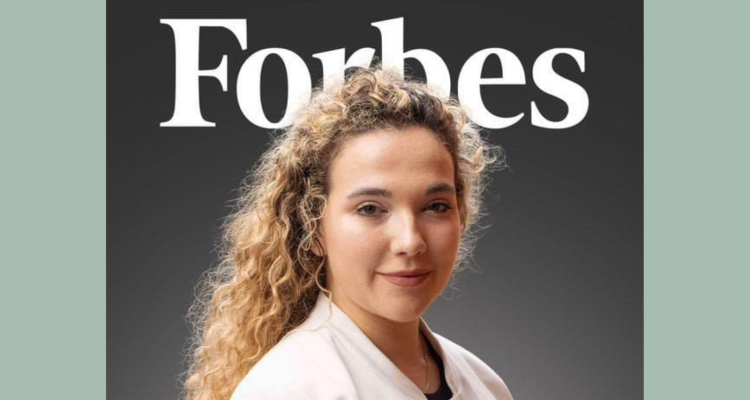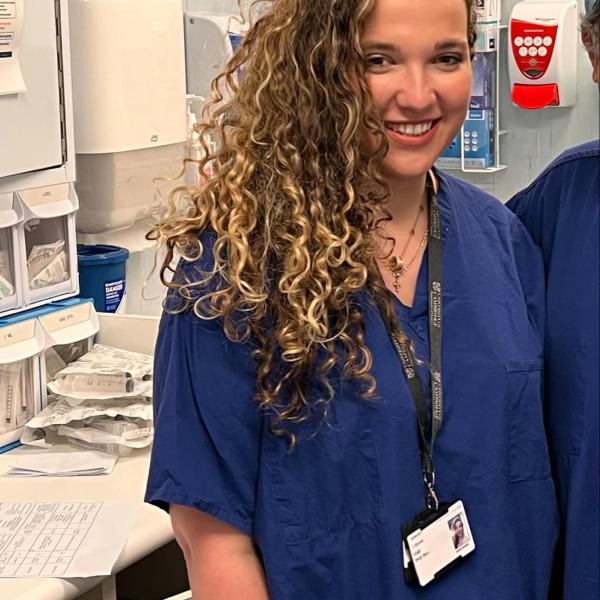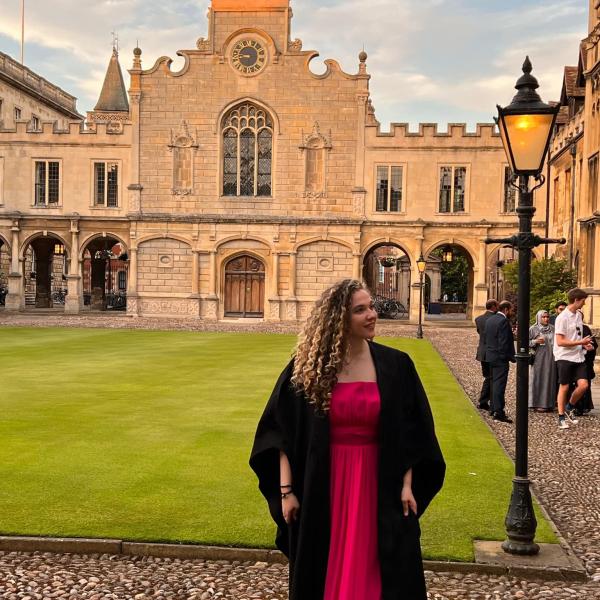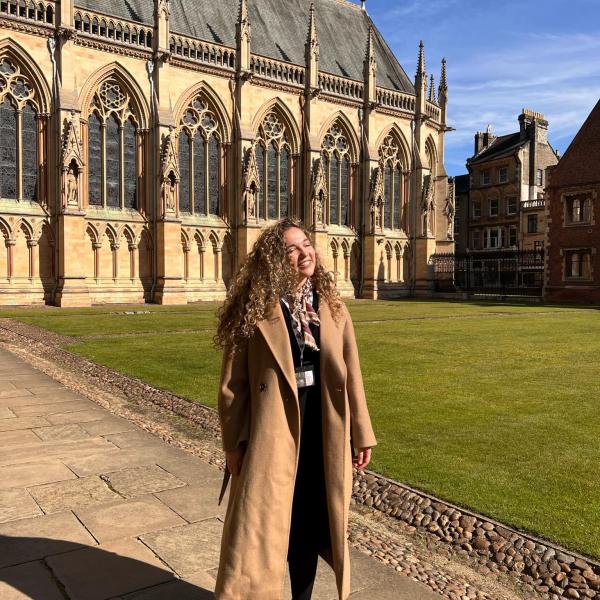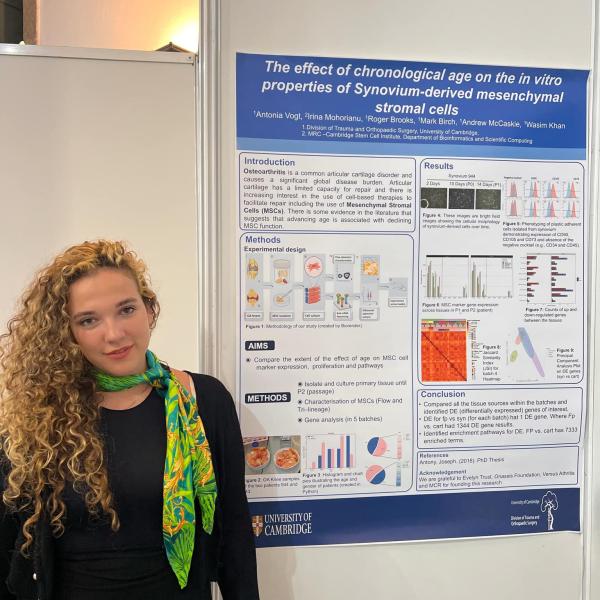From Thessaloniki to Cambridge – with stops in Scotland, France, and the US along the way – this Girton PhD researcher and Forbes 30 Under 30 honouree is making an impact in regenerative medicine. In this interview, Antonia Vogt shares how her personal experiences have fuelled her passion for research that transforms real-world health outcomes.
Tell us a bit about your academic background. Where did you study before Cambridge? What brought you here for your PhD over other universities?
I grew up in Thessaloniki, Greece, and began my academic journey in Scotland, where I pursued a degree in Cellular Biology. During my undergraduate studies, I had the opportunity to engage in cancer research, which not only deepened my interest in the field but also sparked a passion for contributing to medical advancements. Teaching and Research assistant.
In 2018, I moved to France to work at the Curie Institute, continuing my focus on cancer research. The following year, in 2019, I was honoured to receive a full scholarship to represent my university in the US at the University of Illinois Urbana-Champaign an incredible opportunity to grow my research skill in cancer (glioblastoma). After completing my studies in Scotland in 2020, I began my PhD in Surgery at the University of Cambridge, with a scholarship. This step marked a pivotal moment in my career, allowing me to explore the innovative field of regenerative medicine.
In 2022, I further expanded my expertise by working for a short period at Harvard Medical School in Brigham and Women’s Hospital’s Department of Neurosurgery, gaining valuable experience in a prestigious institution.
What drew me to Cambridge for my PhD was its renowned academic environment, the chance to work with world-class mentors, and the University’s leading role in cutting-edge surgical and biomedical research. Cambridge offers an unparalleled environment to explore transformative ideas and contribute to the advancement of science in meaningful ways, which makes it the perfect place for me to pursue my research aspirations.
How did you discover your passion for your research?
My passion for research was born out of deeply personal experiences. Witnessing the pain and helplessness that come when a loved one suffers from an illness profoundly impacted me. It made me realise how crucial it is to push the boundaries of science to develop new therapies and offer hope to patients and their families.
During my undergraduate studies, I had the opportunity to engage in cancer research, and that was when I truly discovered the transformative power of scientific inquiry. I saw how research could bridge the gap between uncertainty and solutions. Later, I became fascinated by the potential of stem cell therapies, which offer a regenerative approach to healing. This realisation drove me to focus on the innovative field of Regenerative Medicine.
For me, research is not just about advancing knowledge; it’s about creating a positive impact in the real world. Every experiment and every discovery is a step closer to helping people live better, healthier lives, and that’s what keeps me motivated and passionate about my work.
What are you working on in your PhD?
I’m currently pursuing my PhD in Surgery at the University of Cambridge, focusing on Regenerative Medicine. My research is centered on using stem cells for cartilage regeneration. Specifically, I’m leveraging bioinformatics to determine the most suitable type of tissue for cartilage repair based on the patient’s age and gender, which could personalise treatments and improve outcomes.
As part of my work, I’ve developed an extensive data library using innovative technology. This resource has the potential to extend far beyond musculoskeletal diseases, offering valuable insights into conditions like cancer and neurological disorders.
Before this, I was also involved in cancer-related research, which gave me a solid foundation in tackling complex medical problems. My work combines my passion for health sciences with a drive to create meaningful tools that can transform how we approach disease treatment and regeneration.

